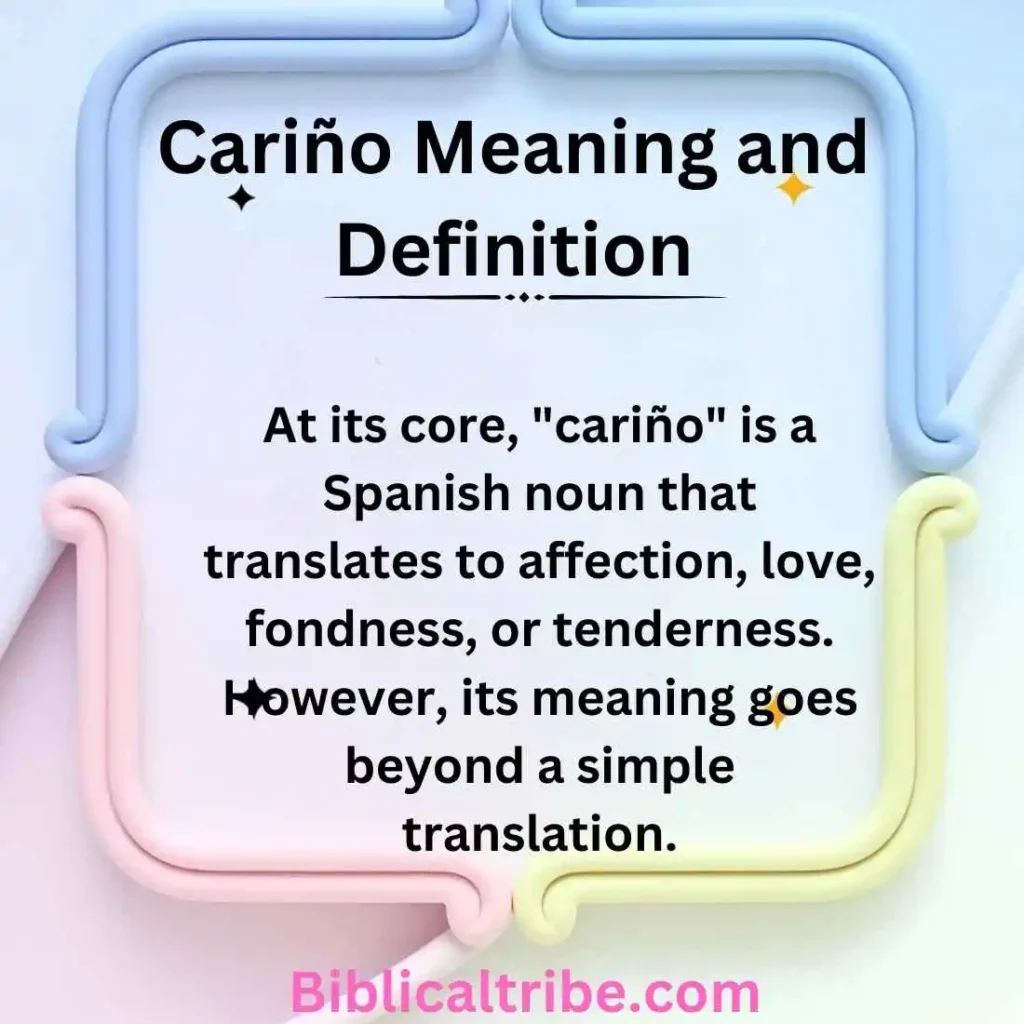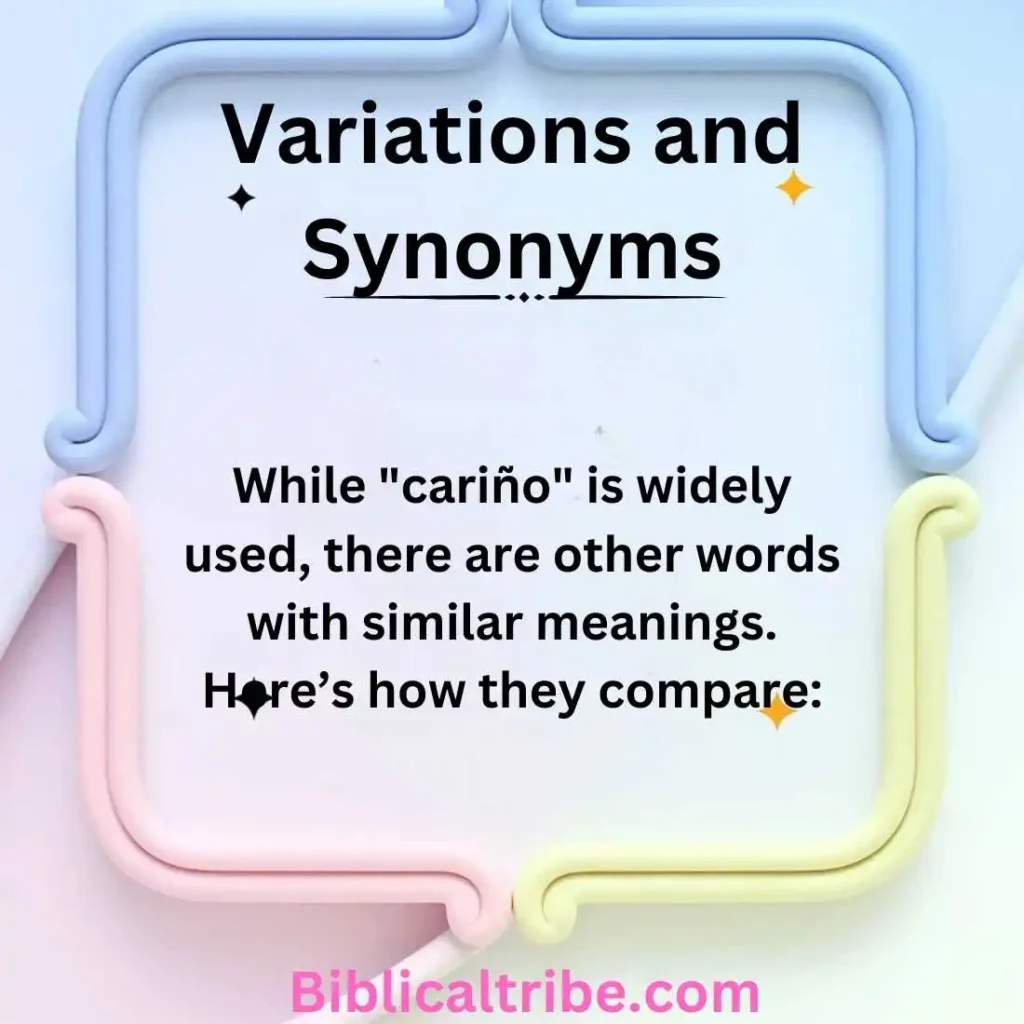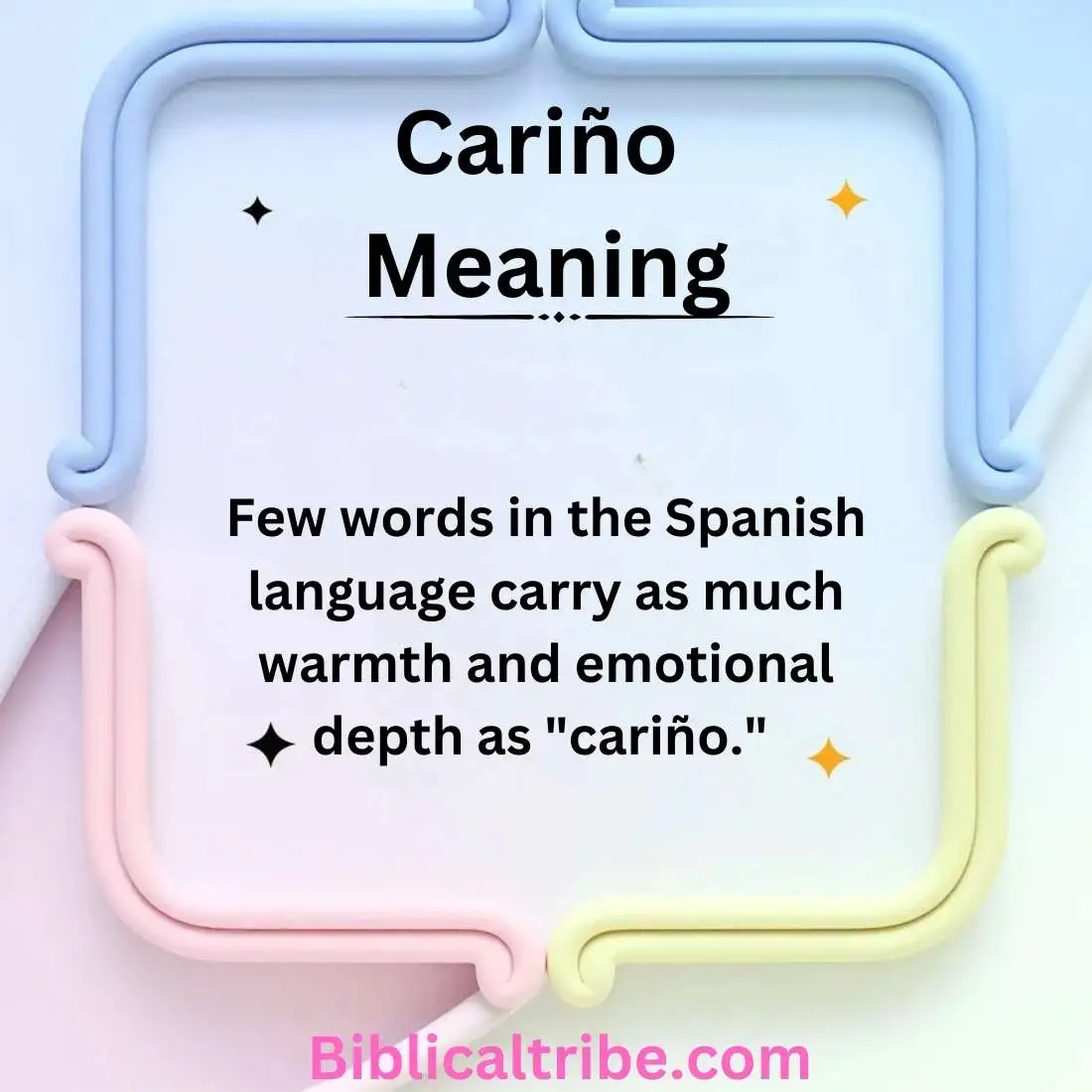Last Updated on February 9, 2025 by Ethan Richards
Few words in the Spanish language carry as much warmth and emotional depth as “cariño.” Whether spoken between lovers, friends, or family, this term embodies a sense of love, care, and endearment.
But what exactly does “cariño” mean? How is it used, and why is it so special in Spanish-speaking cultures?
In this article, we will explore the meaning, usage, and cultural significance of “cariño,” diving into its origins, variations, and how it compares to similar words in English.
By the end, you’ll have a deep understanding of this affectionate term and how to use it naturally in conversation.
Cariño Meaning and Definition

At its core, “cariño” is a Spanish noun that translates to affection, love, fondness, or tenderness. However, its meaning goes beyond a simple translation.
Literal Meaning
- The word “cariño” originates from the Latin word “carus,” meaning “dear” or “beloved.”
- It is commonly used to express affectionate feelings towards people, animals, or even objects.
- Grammatically, “cariño” is a masculine noun, meaning you would say el cariño when referring to it in a sentence.
Common English Translations
While “cariño” is often translated as “affection,” its meaning varies based on context. Some common English equivalents include:
| Spanish | English Equivalent |
| Cariño | Affection, love, fondness |
| Mi cariño | My love, darling, sweetheart |
| Sentir cariño por alguien | To feel affection for someone |
How Cariño Is Used in Spanish-Speaking Cultures
In Spain, Latin America, and other Spanish-speaking regions, “cariño” is an essential part of daily communication. Here’s how it’s used in different contexts:
Romantic Relationships
- Used as a term of endearment between partners:
Example: “Te amo, cariño” (I love you, darling). - Can replace names when addressing a partner lovingly.
Family and Close Friends
- Parents often use “cariño” for their children:
Example: “Ven aquí, mi cariño” (Come here, my love). - Friends use it to express warmth:
Example: “Gracias por tu cariño y apoyo” (Thank you for your affection and support).
Casual and Friendly Interactions
- In Spain, it’s common for store clerks, waiters, or coworkers to use “cariño” as a friendly gesture.
- Similar to how “sweetie” or “honey” might be used in English.
Variations and Synonyms

While “cariño” is widely used, there are other words with similar meanings. Here’s how they compare:
| Word | Meaning | Context |
| Amor | Love | More intense, used in deep romantic/familial relationships |
| Ternura | Tenderness | Describes a soft, loving feeling |
| Afecto | Affection | More general, used in friendships and relationships |
| Encanto | Charm | Often used to compliment someone |
Key Differences
- “Cariño” is softer than “amor” but warmer than “afecto.”
- It conveys a close bond without necessarily implying deep love.
Regional Differences in Meaning
“Cariño” is widely understood across Spanish-speaking countries, but there are some nuances:
| Country | Unique Usage |
| Spain | Often used casually by waiters, shopkeepers, and friends |
| Mexico | Used romantically and in affectionate family settings |
| Argentina | Commonly used among close friends |
| Colombia | Frequently used by parents for children |
How to Use Cariño in Sentences
Here are practical examples to help you use “cariño” correctly:
Romantic Context
- Buenos días, mi cariño. (Good morning, my love.)
- Eres mi mayor cariño. (You are my greatest love.)
Friendly or Family Context
- Siento mucho cariño por ti. (I feel a lot of affection for you.)
- Dale cariño a tu abuela. (Show affection to your grandmother.)
Casual Use
- No te preocupes, cariño. (Don’t worry, sweetheart.)
- Gracias por todo tu cariño. (Thanks for all your love and care.)
English Equivalents and Cultural Differences
Unlike Spanish, English doesn’t have a direct one-word equivalent for “cariño.” Instead, it uses various words depending on context:
| Spanish | English Equivalent |
| Cariño | Affection, love |
| Mi cariño | My dear, darling |
| Sentir cariño | To have fondness/love for someone |
Cultural Differences
- In Spanish-speaking cultures, words of affection are used more freely.
- English speakers tend to reserve “love” for deeper connections.
Cariño in Popular Media
“Cariño” frequently appears in songs, movies, and literature.
Famous Songs Featuring Cariño
- Con todo mi cariño – Rocio Durcal
- Cariño mío – Camilo Sesto
- Sin tu cariño – Marco Antonio Solís
Movies & TV Shows
- In telenovelas, characters often use “cariño” to express deep emotions.
- In Disney’s Encanto, the grandmother shows “cariño” towards Mirabel and her siblings.
Conclusion
“Cariño” is more than just a word—it’s a cultural expression of love, warmth, and connection. Whether you use it in a romantic, familial, or friendly setting, understanding its depth will help you communicate affection more naturally in Spanish. So next time you want to express love, don’t be afraid to say “cariño!”

Ethan Richards is an accomplished author and dream interpreter known for his insightful and thought-provoking analyses. With a keen eye for detail and a passion for biblical studies, Ethan helps readers unlock the secrets of their dreams, offering clarity and spiritual enlightenment.








